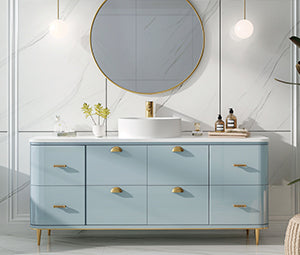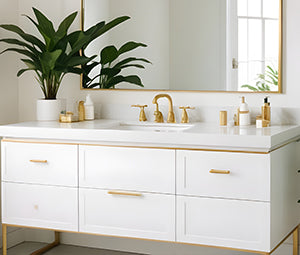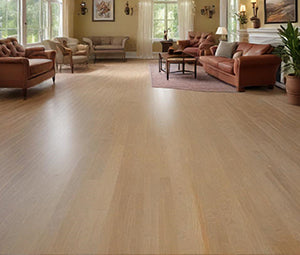The Pros And Cons Of Quartz Countertops
Quartz is one of the most beautiful and durable stone materials that you can use for your kitchen and bathroom countertops. But there's more to quartz than just its stunning looks - it also has some amazing properties that make it a very desirable and popular material. They are created through a manufacturing process that mixes approximately 95 percent ground natural quartz with 5 percent polymer resins that hold it all together. The percentages vary depending on brand, but the results are super durable, low-maintenance, and a natural stone look in a variety of colors. Quartz is more durable than granite and doesn’t chip as easily. Since they are man-made they offer a large array of different marbling designs and color choices that a natural stone does not.

Difference Between Prefabricated Countertops and Slab Countertops
As we mentioned in a previous blog post, let's talk about the difference between Pre-fab and slab. Prefabricated countertops have already been cut to certain standard dimensions to fit the exact space that your are needing. While slab countertops are more custom and cut from a single slab of stone. Homeowners can select exactly what they want, and have that piece of stone cut to their specific size and dimensions. On average, granite countertops will add 25% of its cost to your overall home value, per David Rounick, commercial development consultant in Philadelphia. Now how will they know you got the granite at 25% of a slab install? They won't, and you win.
Pros:
- Low-Maintenance
Quartz never needs to be sealed and can easily be cleaned with soap and water.
- Antimicrobial
Resin binders make quartz counters nonporous, so stain- and odor-causing bacteria, mold, and mildew can't penetrate the surface.
- Very Durable
Quartz countertops are highly stain resistant, have a very low water absorption rate, and do not require sealing. highly scratch resistant
Cons:
- Can Be More Pricey
According to Marble.com, Quartz countertops "are in high demand due to the benefits mentioned above. Quartz typically costs between $50 to $120 per square foot depending on several different factors. The factors that impact the cost of granite, such as cutouts and angles, will also impact the cost of quartz."
- Not Heat Resistance
Quartz counters are heat resistance, BUT only to a certain point. According to This Old House, "Most manufacturers say their products can handle up to 400 degrees F, but a sudden change in temperature or sustained heat from a pan left on the counter may cause the surface to crack." You should really always use a hot pad.
- Not The Best For Outdoor Use
Sunlight can easily fade and warp quartz. A better alternative would be to use granite. You can read more about granite countertops on one of our previous blog posts here!
For more information about quartz countertops check out this video below!








